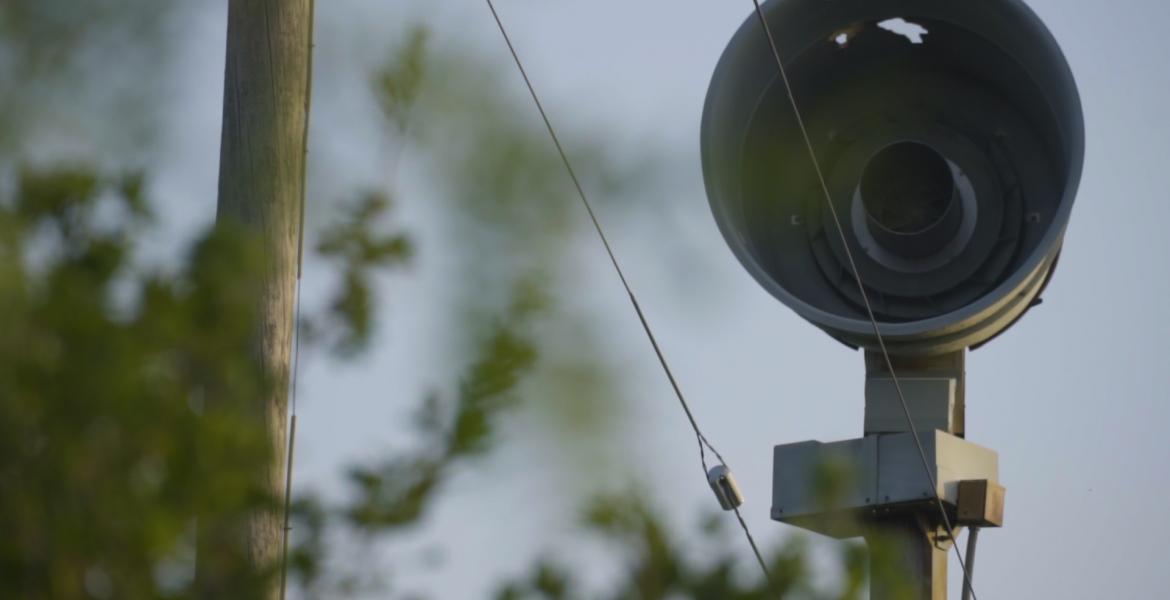“When I started law school in 1974, out of a class of 200, there were probably 20 who were women. That was it,” says 51st District Judge Barbara Walther. “I grew up here in San Angelo, my parents were long-time community volunteers and leaders,” she continues. “I am one of those really fortunate people that actually growing up, I knew a woman who was an attorney, and was practicing law when women didn’t go to law school…she encouraged me to follow passions, and if I wanted to be something, to not be the secretary, but be the boss.”
Walther, who was still Barbara Lane back then, took the words of attorney Elizabeth Odum to heart. After graduating high school, at the encouragement of her family, friends and Odum, she moved off to Austin to begin undergrad studies in preparation for law school. While she initially intended to continue her studies at The University of Texas at Austin, when Barbara met undergrad and future medical student Steven Walther, it became clear that there would be a change of plans.
“I met my husband at the University of Texas—I was planning to go to University of Texas Law School—and we got married,” Walther said. “He was on his way to medical school, and we had to find a town that had a medical school and a law school, and Dallas did, so we got married and went to [Southern Methodist University] two months later. In June we will have been married 40 years.”
After graduating, the Walthers stayed in Dallas for a while, but Steven Walther soon got a job in San Angelo as a radiologist, and 1983 the family relocated to Barbara’s hometown, where she went into private practice.
“I thought I would go into administrative law,” Walther says. “In fact, I law clerked for a federal agency there in Dallas one summer, it was the Department of Health Education and Welfare. I thought that’s what I would end up doing, [but] I got into it, [and] I didn’t like administrative law that much,” she says. “I realized I really cared about trial law, I really cared about working with people. Business law was challenging, but not as interesting to me as more people-oriented law, so I drifted to family law and criminal law.”
After four years in San Angelo, Walther was approached to consider being Title IV-D Family Law Master for the 7th Judicial Administrative Judicial Region. Walther held the position for five years before an opening on the 51st District Judge bench offered opportunity for advancement when Judge Royal Hart retired.
In 1993, Walther took over the district judge seat, a position she’s held ever since. As district judge, Walther presides over Tom Green, Schleicher, Irion, Sterling and Coke counties. After 15 years serving as district judge, a high-profile case would change the course of her career entirely.
“I tried to treat that case just like any other case,” Walther said, reflecting on the 2008 FLDS case that shocked Schleicher County, San Angelo, and the world. “I tried to prepare for it just like I did for other cases. It had lots of logistical issues, lots of other issues that a more typical case didn’t have, and I found that in that case, it had so many different layers of issues,” she continues.
Walther said that the scope of the case surprised her, as she found that there were many areas of law that were not well developed that related to situation.
“There are not many decisions involving the necessity of law enforcement to respond to emergency calls, whether they needed search warrants to go when they receive emergency cries for help, whether they can just go without a search warrant,” she explains. “You would think there would be lots and lots of cases in that area and there’s not. The state collected 13 trillobytes of computer information in addition to all the physical documents. It had the potential of having church and state issues—it just had a lot of different of issues,” she said.
The FLDS case brought a lot of attention to the judge, garnering support from many on the decisions she was making, while others called for her impeachment. National media descended upon the city of San Angelo and Walther’s every move was watched—not only by reporters and the shock-stricken public, but by members of the FLDS sect as well. During the trials, Walther was under constant supervision by law enforcement, and despite the nastiness of the crimes tried, Walther found motivation in her work.
“I remembered how much I love to do research,” she says, “and that kind of opened the door to thinking maybe I’d like to be writing opinions instead of trying cases, being on the appellate bench. It probably started me thinking about running for this office.”
That office is the Texas Court of Criminal Appeals, a nine-member council that deals with criminal cases for the state. At the end of 2014, three judges will step down, possibly the biggest turnover in anyone’s memory, Walther says.
“I am running for the court of Criminal Appeals, and it’s a co-equivalent of the Supreme Court,” Walther explains. “[In] Texas…when it gets up to the highest level, it bifurcates. All of the civil cases, family law cases, personal injury, contracts—that goes over to the Texas Supreme Court. It would have been less confusing if they called this Texas Supreme Court for Criminal Cases.”
Walther is no stranger to firsts, and if elected she will not only be the first San Angeloan to sit on the court, but the first judge from a city not on or east of the I-35 corridor.
“All the judges on the current court are from the I-35 corridor, or from Houston,” she says. “There’s no judge from east Texas or west Texas or south Texas or from the Panhandle on the Court of Criminal Appeals. I think they need our perspective. I think it would be helpful to have a judge not from a large, metropolitan area.”
Criminal court decisions are often decided unanimously, or with one opposed, Walther says. She doesn’t anticipate changing three judges as impacting those decisions greatly. What’s more, she said, is that really important cases are often 4-5 or 6-3 decisions, which makes having the perspective of other parts of the state represented much more vital.
Of the issues she foresees to be decided in the future, those concerning search and seizure, particularly in the area of electronic communications, were named specifically. Walther says that in the next couple of years, the state and the nation are going to have to rule on which steps are necessary—if any—for law enforcement agencies to go through before things like emails and cell phones can be searched.
“I think one of the areas is going to be electronic communications,” Walther says. “Is it more closely akin to someone’s writings, diaries and special protection that we afford those, or is it not as protected. That’s an area that’s going to affect all of us.
“I think any judge brings their experiences, their perspectives,” she continues. “Having lived in a metropolitan area—I lived in Dallas for a while—but having lived out here, I think I may have a different perspective of privacy rights, of individual rights than someone else.”
Walther also brings 22 years of trial experience to the table. The Texas Court of Criminal Appeals does not require that judges have experience in the courtroom, and of the nine currently sitting, only three have experience as trial judges. Judge Tom Price, who currently holds Place 3, is one of those judges and will be retiring at the end of the year. Walther is running for his place.
“I think that it’s extremely important that the judges down there—or at least a percentage of them—be practitioners of judging,” she says. “It’s hard to understand what it’s like during a trial in five minutes to be asked to make seven different decisions on rulings. It’s kind of a difference of always being the referee and never having played tennis…you need to understand what it’s like to do that and a lot of the current judges have had predominantly just appellate experience.”
Walther continued to say that she doesn’t see anything wrong with having judges on the bench who lack experience, however feels that a blend of the two is important for understanding.
“I’ve got 22 years of every day trying cases, of everyday having criminal cases in my court,” she says. “I’ve seen how it affects the victims, I’ve seen how it affects their families…and I’ve seen what it costs the state, the county to do these cases. So I think that’s a perspective that I can bring.”
In her years in the legal field, Walther has held many elected offices on various boards and councils in the state of Texas. She is a past chair of the judicial section of the State Bar, a past chair of the Texas Center for the Judiciary, and was head of the curriculum committee for the Texas Center, among many other appointments. She was also recently endorsed by the Dallas Morning News, who described its support of Walther over opponent Bert Richardson of San Antonio, by writing “This is a tough choice, but we lean toward Judge Barbara Walther, 61, of San Angelo because of the depth of her bench experience and breadth of judicial coverage across very small, often rural jurisdictions.”
The point on small-town savvy isn’t lost on Walther either, although she says that opponents in larger areas benefit from larger support systems.
“I hope that running from a traditional area, I can build up a lot of support from the area,” she said. “I think sometimes you get discouraged from running for office because you’re not from a large community that has a built in support system.”
Currently, Walther is working to garner support from those around San Angelo and in west Texas. Primary elections take place March 4. For more information on Barbara Walther, visit her webpage. Further information on the Court of Criminal Appeals may be found here.
Subscribe to the LIVE! Daily
Required






Post a comment to this article here: